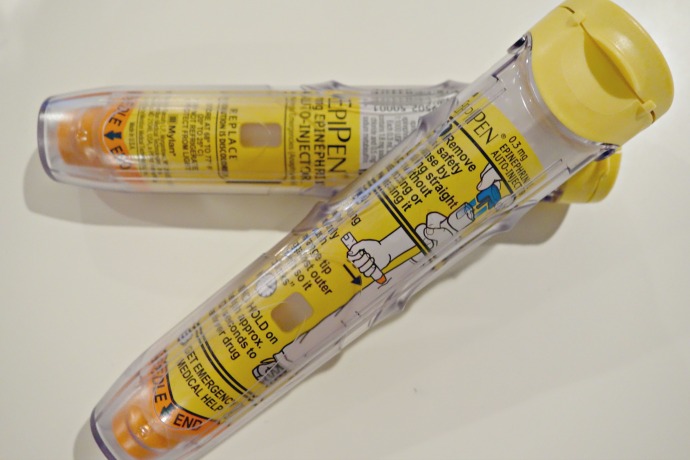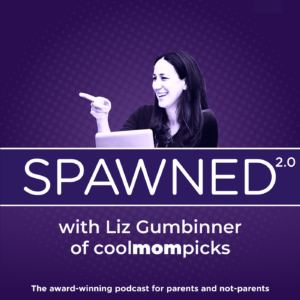When we first discovered my oldest daughter was allergic to peanuts and could have an anaphylactic reaction, our allergist told us that keeping EpiPens with her at all times could mean the difference between life and death.
Think about that as a parent. Death. Of your child.
You can bet that since that day, she has never gone anywhere without her EpiPens. And since that day, we have had a huge additional annual expense that definitely puts a a strain on our budget. But, that’s what you do to keep your kids safe.
So you can imagine that we’ve been all ears when it comes to all the news of Mylan’s 400% EpiPen price hike that was announced over the past week, a tremendous price increase created simply to create more profitability before a competitor enters the field.
Related: A digital savior for parents of kids with food allergies
In response to the recent firestorm over Mylan’s skyrocketing costs for the injectors — to $600 for the two-pack– the company announced that they will offer various forms of assistance to make EpiPens more affordable. Yesterday, they went further and announced they would put out a generic version of the medication at a 50% price cut.
It sounds like a decent enough first step for a more positive newspaper headline, but read the fine print.
It’s not enough.
You’ll see that the 50% cut is not available to every family. And for those who do qualify, the two-pack will still cost $300. That’s significantly more than the $100 it cost when my daughter was a toddler, and even more than the $240 per EpiPen two-pack that Canadians pay — evidence that the company can still make a hefty profit even without quite so huge a mark-up, and still be sure they’re not putting children like mine at risk for unspeakable consequences.
So while the entire country seems angry at the greed of a company helmed by CEO Heather Bresch who gave herself a 671% salary increase over the past 9 years, you can imagine why families like mine, which grapple with life-threatening food allergies, are more than pissed off. We’re terrified.
But then, I started to think about the positive aspect of this story:
We’re talking about it.
The entire country, it seems, is talking about kids with life-threatening allergies, the importance of having medication on hand — and the consequences of not having it at all.
It’s a national conversation I think has been long overdue.
Related: 10 things my daughter with food allergies wants you to know.
For years, parents with kids with allergies have felt the need to explain ourselves. Sometimes we’ve had to deflect some really awful criticism. We’ve had to defend reasonable requests to school administrators and even school nurses. We’ve needed to reassure other parents that our kids are not intending to ruin the lives of peanut-butter loving kids, or make your lunch-packing choices more difficult, or to add more work to your birthday party planning or playdate hosting.
We desperately try find the balance between being the “good parent” we want to be — the one who isn’t difficult or demanding when it comes to Halloween candy or peanut-free lunch tables or homemade cupcakes generously brought in for a class celebration — with the very real fear that when our children leave us for a playdate or a month at summer camp or just a regular day at school, that they can easily end up in the hospital.
I have to think about the dreadful possibility every single time my daughter isn’t home with me.
And now, thanks to the EpiPen price hike controversy, more people understand that possibility too.
More parents, more teachers, more caregivers, more restaurant staff — more of those who have the lives of children in their hands. Whether they know it or not.
And I am so grateful.
So yes, we’re going to keep speaking up about the affordability of lifesaving medications for all families, and demanding better cost-saving solutions from pharma companies like Mylan. But I want to stop and thank those of you who are speaking up, even when you don’t have to.
Especially if you don’t have children with allergies.
Especially if you don’t have children at all.
For more info food allergy safety, you can get a wealth of information and support from FARE (Food Allergy Research & Education) and check out these patient assistance programs that help families financially if you’re having trouble affording your child’s medication like the Mylan EpiPen.






Georgette, I want to commend your bravery and positivity! My kids do not have life threatening allergies but minor allergies and major sensitivities so I know I can never walk in your shoes but thank you for writing this so the rest of us can understand. This NEEDS to be talked about! I’m not sure I could even afford the $300 EpiPen (with voucher!). Of course, I would buy it to protect my child’s safety – and it unfathomable to me that this company would hold the lives of children hostage for their profit. I truly hope some REAL action comes out of this – from Congress and from the companies who make this product – that serves the people and not their pockets.
Thanks for your kind words Gina. I too hope that REAL action comes out of this, and I’m hopeful that in light of this news and the conversation it has started, it will.